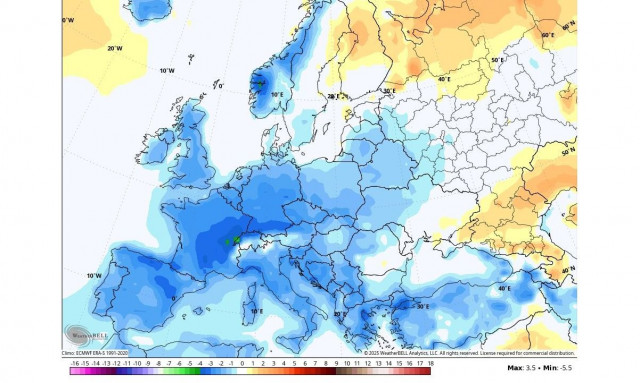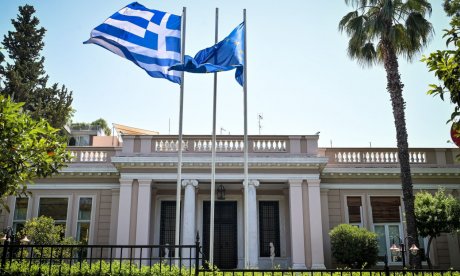India's FATF recognition paves its road to a $30 trillion economy by 2047
India’s excellent rating will enhance the capacity of the country to lead the global effort on countering cross-border terror financing and money laundering

India recently voted Prime Minister Narendra Modi and his National Democratic Alliance (NDA) government to power for the third straight term.
Within a few days of the new government's formation that was preceded by the world's biggest democratic exercise in a multi-phased election, the country added a feather to its crown when the Financial Action Task Force (FATF), a global agency that develops policies to combat money laundering and terrorism financing, placed the nation in the ‘regular follow-up’ category.
The category is elite since it has the distinction of being shared by only four other G20 countries. FATF places member countries in four categories - ‘regular follow-up’, ‘enhanced follow-up’, ‘grey list’ and ‘black list’.
Regular follow-up is the top most category among the four. Only five countries in G20 including India have been placed in regular follow up after a mutual evaluation report.
To be placed in ‘Regular follow up’ category means India needs to submit a progress report on recommended actions only in Oct 2027, said media reports.
In its statement, the Ministry of Finance summed up the achievement. It said the development marks a significant milestone in the nation’s efforts to combat money laundering (ML) and terrorist financing (TF).
India’s performance on the FATF Mutual Evaluation holds significant advantages for the country's growing economy, as it demonstrates the overall stability and integrity of the financial system.
The rating is assumed to be significant since it will lead to better access to global financial markets and institutions and increase investor confidence.
The FATF appreciation and acknowledgement will also aid India, the fifth-largest economy in the world, in the global expansion of the Unified Payments Interface (UPI), India's revolutionary instant real-time digital payment system to facilitate inter-bank transactions through mobile phones.
The recognition also proves to be a testament to the effective measures implemented by the Indian government over the last 10 years to safeguard its financial system from ML/TF threats, a golden feather added to the crown of the Modi administration in its previous two terms.
India’s excellent rating will enhance the capacity of the country to lead the global effort on countering cross-border terror financing and money laundering.
“Implementation of the JAM (Jan Dhan, Aadhaar, Mobile) Trinity, along with stringent regulations on cash transactions, has led to a significant increase in financial inclusion and digital transactions; these measures have made transactions more traceable, thereby mitigating ML/TF risks and enhancing financial inclusion,” the statement said.
Since 2014, the Government has enacted a series of legislative changes and bolstered enforcement efforts to tackle ML, TF, and black money.
"This multi-pronged strategy has brought these measures in line with international standards and has demonstrably proven to be effective, yielding positive results. Indian authorities have had success in dismantling the terror funding network using actionable intelligence inputs. These operations have stemmed the flow of terror funding, black money, and narcotics, even along the coastline," the Indian government said in a statement.
Before returning to power in June, the Modi government highlighted the road it will take to make India an economically stronger nation by 2047.
In May this year, External Affairs Minister S Jaishankar emphasized the goal of 'Viksit Bharat' (developed India) by 2047 as envisioned by Prime Minister Narendra Modi and urged business associations to partner with the government to ensure the revival of the country's manufacturing sector with the target of making the size of the Indian economy at USD 30 trillion by 2047.
The BJP-led government at the Centre has set ambitious economic goals of reaching a $5 trillion economy by 2027-28 and $30 trillion by 2047 and this FATF recognition will remain a step forward in reflecting India's growth internationally in the economic sector.
Highlighting the government's robust plan for strengthening the nation, S Jaishankar had said the Centre's sole focus is to attain a USD 30 trillion economy within a set time frame.
Similarly, Union Finance Minister Nirmala Sitharaman, who has been tasked with the portfolio in this term as well, has set the path of touching the $5 trillion mark by 2027-28.
“It is believed that we will surely be able to reach the third-largest economy goal about which the Hon’ble Prime Minister has been speaking with a good sense of confidence,” Sitharaman had said earlier this year.
It now remains to be seen how the new government implements its measures and fulfils the dream it had promised to the millions of people in the nation who dream to see India transform into an economic powerhouse in future.
























